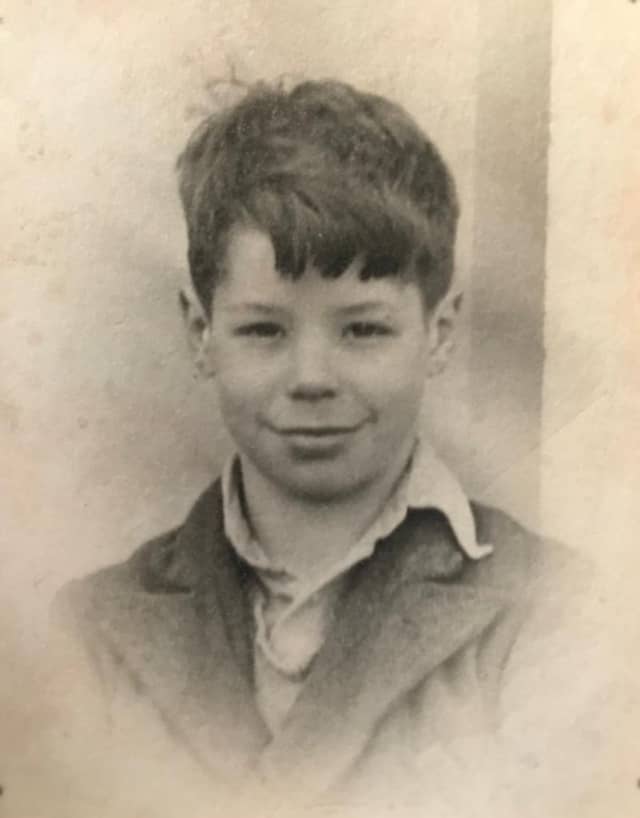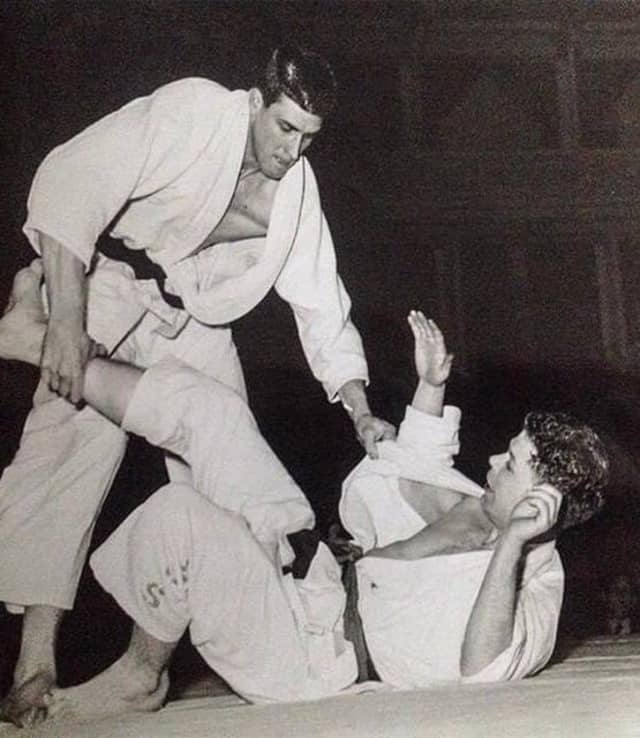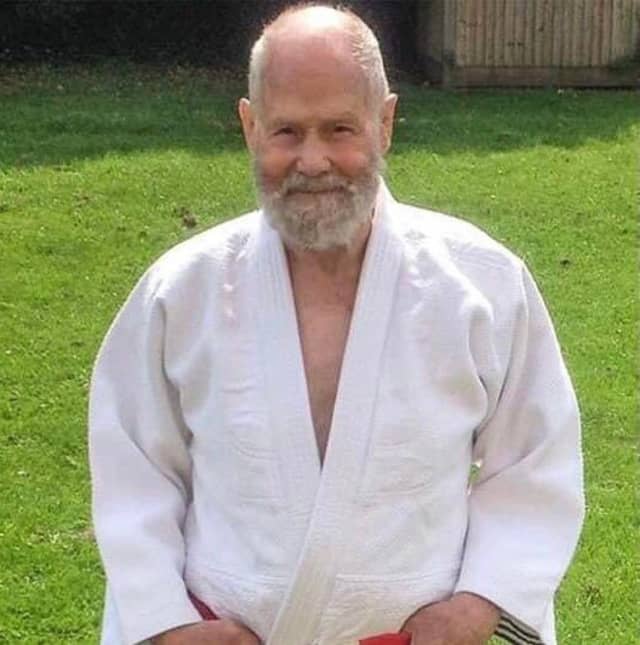The first article:
“I was evacuated to 5 miles from Corby in Northamptonshire during the Second World War. I put a gas mask on and was given a lunch pack. I had contact details pinned to my chest and was told nothing. Once we arrived, me and my sisters slept under a huge farmers’ table. We heard the bombers coming over but they never hit the local steel works. I was 6.
I lived in Chalcott Square in the Primrose Hill area of London until 1939 and then after the war I was in Maida Vale. I then left home at 14. I joined the air force in 1951 and learned the trade of aero engine mechanic, being posted to Nottinghamshire and then Thorney Island, off the coast of Hampshire, for navigation training.
I used to play football for my squadron but I’d found a book by Eric Dominy and then trained judo because I liked it and wanted to learn judo rather than just do judo to get fit.”
The judo community was very different from the one we understand today; far fewer people were taking part globally and analogue communications made the speed at which we move across the world now, totally impossible. Still, Michael Leigh was a young man of action and energy and he pursued every avenue of development and education within judo, becoming a member of the British team, learning to be a referee and picking up a variety of qualifications along the way. A varied and exciting judo life led Michael Leigh all over the world, or rather he led it!
“It was in about 1957 that I fought Anton Geesink at the Albert Hall during the London Judo Society’s Festival of Judo. ‘Judo Club Holland’ came. Of course no-one was really up to that task so I volunteered to fight him so that our best player, John Chaplin, could fight elsewhere in the team and win any other match. They were astounded I’d fight him! I decided to run around like a ferret until I ran out of steam. The referee, Geoff Gleeson, smiled. It was staged up on a platform and so while he was holding me I dragged us to the edge and escaped that way, by pulling myself to the edge.” The rules at the time stated that a hold down would be broken if uke could make it to the edge of the contest area. “I was 12.5 stone (79kg) at the time. The final time that event was run, it was at the Black Prince Road cinema, London SW11. That time it was the Japanese Olympic wrestling team who came to have a judo match.”
The video, above, showing Geesink and Leigh in 1957, is from Michael Leigh's private collection.
Geesink and Leigh remained lifelong friends after that, exchanging Christmas cards throughout their lives, until Geesink passed away in 2010.
“As an aside, we once went to the Netherlands and there was a red carpet laid out on arrival because they thought it was Charlie Chaplin arriving. It wasn’t, it was our judoka, John Chaplin.
I was Brian Jacks first judo teacher and for the tenth anniversary of our club I wanted to stage a judo show but with judo, freestyle, Greco Roman, aikido, karate, sambo, a junior competition and a ten-man team match, with a team from the Budokwai to come and fight our 10-man team from Mid-Sussex. We would have a proper weigh-in and a referee, Joe Rowe from London, plus two more referees from outside Sussex. The press were invited. We put forward 2 at each weight category for 5 weights. Jacks asked to fight twice, by then in the Budokwai team, and I let him as I knew the crowd would want to see that. The Budokwai team came without knowing if they’d make weight. I’d made sure mine made their weights and I psyched them all up! At the end it was 5 wins each, 43-39 points. The Budokwai team included Brian, Billy Ward, Mark Fricker, Neil Adams and Chris Bowles, among others, but we won! That was back in about 1976.”
Michael Leigh’s anecdotes and nuggets of wisdom are endless and thoroughly entertaining but are accompanied by very few photographs, which is sad but makes it even more important that we share such memories.
Michael Leigh was promoted to 9th dan in April 2023, becoming only the 23rd judoka to hold such a grade with the IJF.



